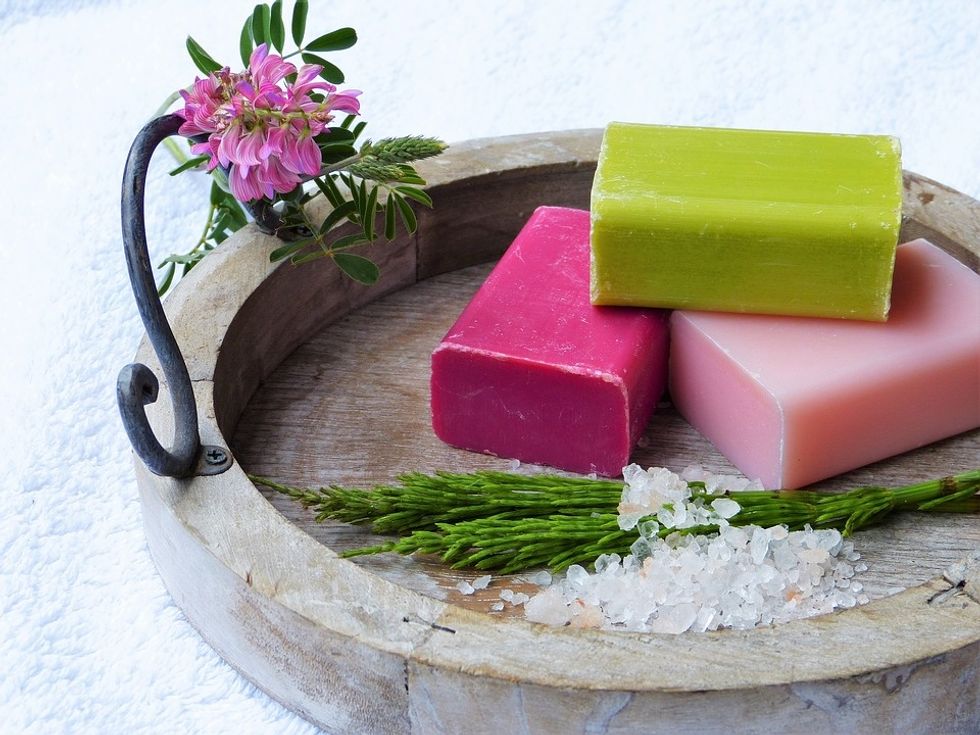From warm, dry summers to cold, snowy winters, it can be tough to maintain healthy skin in Colorado's everchanging climate. In the Centennial state, you can enjoy sunny, 60-degree afternoons in January and get hit with every form of precipitation on a single summer day. These weather changes may be fun, but abrupt shifts in humidity can do alarming things to our complexion. From patches of dry skin or redness to stubborn breakouts and blemishes, finding the right skin care regimen can be complicated in Colorado.
Fortunately, there are customized treatments for every skin type including at-home remedies, over-the-counter products, and prescription medications. Learn more about the causes of acne and what tricks and products work best for dry skin, no matter what kind of weather Colorado throws at you.
What causes acne?
Acne occurs when oil and dead skin cells clog hair follicles in your face, back, chest, or another part of your body. While acne is most common in teenagers and young adults, anyone can have trouble with whiteheads, blackheads, pimples, or other bumps and blemishes. Oily skin is definitely associated with acne breakouts, but those of us with dry skin know that managing it isn't easy either.
Acne is to some degree genetically passed from parents to children, but many other factors play a role in day to day skin health. Anxiety, hormonal changes, and squeezing or picking at acne impact the health of your skin. Winter is an especially difficult time as we travel between extremes of heat and cold experiencing different humidity levels.
One important thing to remember is that your skin is not 100% oily or dry: most people have patches of oily skin and patches of dry skin. Keep this in mind as you create a skincare routine that works for each problem area you focus on.
Over The Counter Remedies
When your skin is dry, it is easier for the bacteria that causes blemishes to thrive in your pores. While it is important to rehydrate your skin, you also do not want to go overboard because using too many cosmetics or over-washing can further exacerbate existing acne.
MIlky, hydrating cleansers work best for these hydration boosts. Most of these washes hydrate and clear makeup and other cosmetics away to keep the skin clean and soft. Stay away from alcohol and menthol-based products and find a daily moisturizer that works for you. If you do choose to use a product with either of these ingredients, do so sparingly (3 times a week tops).
Another great habit to get into is applying a layer of sunscreen or a moisturizer that includes SPF. It also may seem counterintuitive, but consider wearing sunscreen during colder weather: snow can reflect the sun's rays more than water on the beach causing skin inflammation and irritation. Use a non-comedogenic sunscreen that won't clog your pores to prevent breakouts.
If you're looking to treat blotchiness and red patches, seek moisturizers, scrubs, and cleansers designed to do so. Some dermatologists recommend adding a toner to your skincare routine to help with redness.
Natural Remedies
If you prefer not to rely on costly cosmetics, you can fight the bacteria that causes acne by applying apple cider vinegar after you wash and cleanse your face. Mix one part apple cider vinegar to three parts water and dab on your face gently with a cotton ball. After around ten to twenty seconds, wash your face with warm water. Even though it feels great during colder weather, try not to wash your face or take showers in scalding hot water because it actually causes the skin to dry out.
Spot treat problem areas with tea tree oil, which is also known to fight acne-causing bacteria and decrease skin inflammation. Tea tree oil does not work as quickly as prescription products, but it is less likely to cause dryness, irritation, and burning during and after application. You can also create homemade face masks and spot treatments out of oatmeal, honey, egg whites, and lemons depending on what works best for your skin.
Prescription Grade Options
Some breakouts can only be treated with stronger exfoliants and creams prescribed by dermatologists. If you've consistently and patiently tried dozens of washes and moisturizers, skin care lines, and natural remedies, consult your doctor or set up an appointment with a dermatologist. A professional will be able to identify what is causing the breakouts and prescribe custom products to efficiently kill the bacteria clogging your pores.
The downfall to most of these prescription products is accessibility and high cost. Don't let this discourage you! With so many patients seeking fast treatment, there are quick options available online from companies who offer cheap or free co-pay treatment.
Colorado may have unpredictable weather year-round, but that's no excuse to ignore your breakouts. Deciding when to moisturize can be difficult for people with dry skin. Fine-tune your product list with a testing method of your own or consult a professional for help. Be sure to consider the order you are applying these products to get the most of out of them. In time, you'll have winter and summer products galore to keep your skin soft and luminous year round.
















